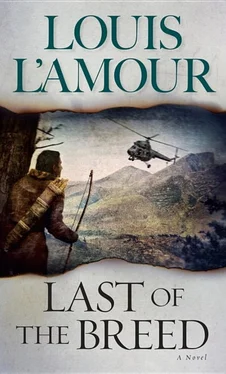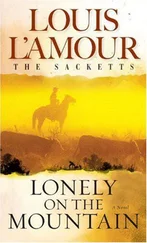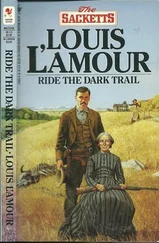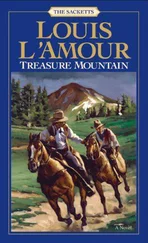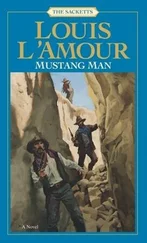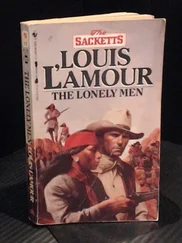Louis L'Amour - Last of the Breed
Здесь есть возможность читать онлайн «Louis L'Amour - Last of the Breed» весь текст электронной книги совершенно бесплатно (целиком полную версию без сокращений). В некоторых случаях можно слушать аудио, скачать через торрент в формате fb2 и присутствует краткое содержание. Город: New York, Год выпуска: 2010, ISBN: 2010, Издательство: Random House Publishing Group, Жанр: Триллер, Историческая проза, Приключения про индейцев, на английском языке. Описание произведения, (предисловие) а так же отзывы посетителей доступны на портале библиотеки ЛибКат.
- Название:Last of the Breed
- Автор:
- Издательство:Random House Publishing Group
- Жанр:
- Год:2010
- Город:New York
- ISBN:978-0-553-89935-1
- Рейтинг книги:3 / 5. Голосов: 1
-
Избранное:Добавить в избранное
- Отзывы:
-
Ваша оценка:
- 60
- 1
- 2
- 3
- 4
- 5
Last of the Breed: краткое содержание, описание и аннотация
Предлагаем к чтению аннотацию, описание, краткое содержание или предисловие (зависит от того, что написал сам автор книги «Last of the Breed»). Если вы не нашли необходимую информацию о книге — напишите в комментариях, мы постараемся отыскать её.
Last of the Breed — читать онлайн бесплатно полную книгу (весь текст) целиком
Ниже представлен текст книги, разбитый по страницам. Система сохранения места последней прочитанной страницы, позволяет с удобством читать онлайн бесплатно книгу «Last of the Breed», без необходимости каждый раз заново искать на чём Вы остановились. Поставьте закладку, и сможете в любой момент перейти на страницу, на которой закончили чтение.
Интервал:
Закладка:
A boat was coming up the river.
Chapter 5
To go back was impossible. He could only go across and downstream, and the log offered scant cover. He slid into the water, and grasping the stub of a branch, he clung to the log, keeping his nose and mouth barely above water.
The steady put-put of the motor continued. He dared not raise his head to look, and he tried not to guide the log too much. Steadily the motorboat drew closer. By the sound it was an outboard motor.
His heart began to pound with slow, heavy beats. He breathed deeply, prepared to submerge if need be. Up to this point he was sure he had not been seen, nor had he left any evidence of his passing since the first hour or so of his escape. Consequently, any search for him must cover a wide area and could not be concentrated. If he were seen by someone who could report him, all that would be ended.
If the unknown man in the boat so much as glimpsed him, that man must be destroyed. That the man might be armed and might shoot on sight, he understood.
Was this someone searching for him? A hunter? A fisherman? Or some traveler returning to his home?
The log was between himself and the boat, yet the top of it cleared the water by no more than six inches. Suddenly the sound of the motor seemed to change. The boat was coming nearer, nearer.
He took a deep breath and went under the water. The boat came nearer, then passed so close he felt the surge of water from the propeller. Carefully, he let his head rise above water. The boat was going on upstream, and he steered the log more crosswise of the slight current to give him cover until he could get to shore.
It was a low shore of willows, and he crawled up on the bank, shivering, glad to have the sun’s warmth. He lay there for a few minutes, letting the sun dry away some of the water that soaked his clothes.
He had lost his staff but found another, a stout stick that he improved a little with the stolen knife.
Restless and eager to be moving on, he walked away from the river, heading east. He left the willows and poplar of the river bottom and worked his way through a larch forest, mingled with some fir and pine of an unfamiliar kind. There were thickets of chokecherry, which he remembered from boyhood days, and groves of aspen.
He took his time, speed being no longer an essential. Now he must prevent discovery and think of survival. At noon, in a tight grove of fir, he ate his second can. It was also fish.
Here and there he found a few chokecherries, but the fruit was so thin around the pits that it offered little except the tart sweetness of the taste.
Slowly, his clothes dried out.
He moved carefully, for at any time he might come upon a hunter or a prospecting party. Hunters he hoped to avoid, but a party of prospectors might provide what he wanted most, a map.
A prospector in Siberia was unlikely to be alone. He would probably be one of a party sent out by the government, and he would be well provided with maps of the terrain over which he was working.
When he had walked for two hours and covered what he believed was about five miles, he sighted the larger river, flowing toward him. He walked on, keeping under cover. He found animal tracks but nothing human. The river lay between two mountain ridges, and when the shadows began to grow long he turned and climbed higher on the flank of the nearest ridge. Warm air rises, and it would be warmer halfway up the ridge than at the bottom.
On the slope where he found his bed he also found some ptarmigan berry, or what the Indians knew as kinnikinic. He ate some of the berries, which were nourishing but rather tasteless. From under the bushes he gathered some of the dried leaves, to make a tea.
From birchbark he prepared a dish, and kindling a small fire he boiled water for his tea, making sure the flames did not touch the bark above the water level. The tea was bitter but tasted good.
He had built his fire of dried sticks that gave off almost no smoke, and he had built it under a fir tree where the rising smoke, little though it was, was thinned by passage through the thick boughs.
Keeping his fire small and using a rock for a reflector, he huddled close and began to examine his situation more closely.
He was a hunted man in the largest country on earth. Most of the area where he now moved was a wilderness. His travel would be on foot, hence slow. Winter was going to overtake him, and travel in winter, in his condition, was unthinkable.
His situation had been improved by his stealing the knife and the sweatshirt, but only a little. He needed a weapon that could kill game at a distance and was silent. Well, his people had solved that question long ago with the bow and arrow.
He had often made bows and was skilled in their use. Often he had lived in the wilds of the mountains of Montana or Idaho and on up into British Columbia with no other weapon. To make a good bow needed time, so he must find a secure place in which to hide out.
He would need meat. More than that, he would need fat, always the most difficult thing for a man to obtain in the wilds. So far he had thought only of putting distance between himself and his pursuers, but by now the chase would have widened and they would be everywhere. He must move on, more slowly, seeking out a place to hide and wait, a place where he could kill some of the game he had glimpsed or whose tracks he had seen.
He must take some skins. Above all he must get some furs. He would need warm clothing.
Yet he must face reality. Acquiring a supply of food to last a winter through was virtually impossible, starting at this late date.
He considered himself. From boyhood he had at every opportunity gone back to the woods. He had lived and survived under some of the bitterest conditions. He had killed or gathered his own food; he knew how to make clothing; he had often made moccasins, something not every Indian knew how to do anymore. Joe Mack banked his small fire and bedded down in a mound of leaves with fir boughs over him. It was cold and it was drafty, but Joe Mack had lived so before this.
Suddenly his eyes opened wide.
Alekhin! Alekhin had never failed to track down an escaped prisoner. Alekhin was a Yakut, a counterpart of the American Indian. He would know the wilderness and he would know how to think about it. He would know how Joe Mack would try to survive, and he would know what he needed.
It was Alekhin, not Zamatev, who was his first and worst enemy. Zamatev might direct. He might order. He might muster all the forces in Soviet Siberia to find one man, but it was Alekhin of whom he must beware, for Alekhin would think like an Indian. He would understand survival, and sooner or later somebody would see him and report his presence.
Alekhin was a master tracker, and Joe Mack knew that no man could long deceive such as Alekhin. The Yakut would find his trail and follow him. He might even surmise where he was going and be there waiting when Joe Mack arrived.
He, Joe Mack, had no friends in Siberia. Or none that he knew of. He supposed there were dissidents. In fact, he had heard of them. There were also many people in Siberia who longed for freer and less stringent ways, but that did not mean they would be disloyal to their government. Mother Russia they had called it under the Tsars and many still thought of it so. They might not entirely approve of their government but it was their government, and they had but little good news about America.
If he was seen he would be reported, captured, or shot. Although there might be people sympathetic or friendly, he knew none of them nor where to find them. He must consider every man and every woman his enemy.
Most of all he must think of Alekhin.
On the thirty-second day of the search Alekhin arrived at the remote cabin of Alexei Vanyushin. Alexei, whose partner had gone back to Chita, was alone, and he was glad of the visitor even if it was a Yakut.
Читать дальшеИнтервал:
Закладка:
Похожие книги на «Last of the Breed»
Представляем Вашему вниманию похожие книги на «Last of the Breed» списком для выбора. Мы отобрали схожую по названию и смыслу литературу в надежде предоставить читателям больше вариантов отыскать новые, интересные, ещё непрочитанные произведения.
Обсуждение, отзывы о книге «Last of the Breed» и просто собственные мнения читателей. Оставьте ваши комментарии, напишите, что Вы думаете о произведении, его смысле или главных героях. Укажите что конкретно понравилось, а что нет, и почему Вы так считаете.
